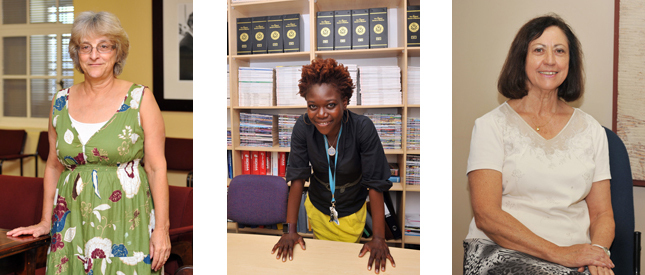Coveted WUN grants for UCT researchers
07 March 2013 | Story by Newsroom
Two UCT research projects have been awarded coveted grants by the Worldwide Universities Network (WUN) for vital research into crucial public health issues.
The three researchers involved in the projects are Professor Naomi Levitt, head of the Division of Diabetic Medicine and Endocrinology, Dr Tolullah Oni, senior research medical officer and Dr Celeste de Jager, senior lecturer in clinical epidemiology, Department of Public Health & Family Medicine.
Levitt and Oni's project examines non-communicable/communicable disease syndemics in transitional societies, while de Jager's concerns dementia prevalence and impact in low-income areas in South Africa.
This year the WUN's Research Development Fund (RDF) awarded grants to 25 projects around the globe, spanning diverse subjects, from urban agriculture, to migration, to the internationalisation of the Chinese higher education system.
"The Research Development Fund is perhaps the most potent example of the power of WUN," said Professor John Hearn, WUN chief executive. "It allows us to invest modest sums to bring researchers from around the world together to work on solutions to some of the most pressing questions facing our planet today.
"When coupled with matching funding from the WUN partner universities involved, we start to see funding of the magnitude where exciting things can really take off."
RDF grants are aimed at catalysing bids to external funding sources, including partnerships with international agencies, research publications, and input into policy. Now in its fourth year, the fund has invested over £858 000 into fostering international research collaboration.
De Jager's project focuses on 400 homes in Xhosa-speaking urban communities where people will be asked to complete a food frequency questionnaire. This will ascertain their dietary intake and links to laboratory tests related to vitamin B and other nutrients.
"The WUN grant is a start-up grant for collaborations with member universities, where all contributors can benefit," said De Jager. "It will allow me to host three overseas experts in the fields of nutrition and cognitive health for a meeting with a larger dementia prevalence project steering committee that I head".
She said there is growing evidence of the importance of diet in mental health and research is needed to determine which nutrients can be most beneficial in delaying or preventing cognitive decline to Alzheimer's disease and other dementias.
Levitt said she was "delighted" with the grant, which would mean herself and Oni would be able to set up a colloquium later in the year involving other WUN members involved in the research, as well as a wider audience.
Oni, who hails from the United Kingdom and who has been at UCT since 2007, says the grant will allow her and Levitt to establish a cross-disciplinary network to evaluate the interactions between diseases like tuberculosis, diabetes and HIV/AIDS.
 This work is licensed under a Creative Commons Attribution-NoDerivatives 4.0 International License.
This work is licensed under a Creative Commons Attribution-NoDerivatives 4.0 International License.
Please view the republishing articles page for more information.










